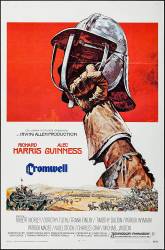Oliver Cromwell: Does the king think that God can be bought with gold, trinkets and gilded rubbish?!
Oliver Cromwell: Any action against any member of this House is a breach of privilege, and I move that this House declare as public enemies any who lays hands upon its members. I FURTHER MOVE! I further move that any such action against this House be considered a crime against the people and treason against this nation.
Charles I: So be it. Mister Speaker, you will inform the members of this House that their service is no longer required by the nation. This parliament is, by my authority, terminated. Dissolved.
President Bradshaw: Sir, you are before a court of law.
Charles I: I see I am before a power.
Charles I: You may be assured I do not intend now to be schooled in my high office by illiterate farmhands, cobblers and basket weavers.
Oliver Cromwell: Do you think I don't desire that? Go home to my farm and my family? Very well. Go again to this king. Offer to him once more our terms. Oh God knows he should be well acquainted with them by now. Tell him he may sit upon his throne, but that this country will be governed by parliament and parliament will be elected by the people. Now, Sir Thomas, if you can achieve this where we have failed this trial will end.
King Charles: Mr. Cromwell, you are impertinent.
Oliver Cromwell: Such issues are beyond good manners, sir. Catholicism is more than a religion. It is a political power. Therefore, I am led to believe there will be no peace in Ireland until the Catholic Church is crushed.
Oliver Cromwell: O Lord, Thou knowest how busy I must be this day. If I forget Thee, do not Thou forget me.
Oliver Cromwell: John, how many times did we sit together in parliament in the old days, and how many resolutions did we pass, and how many times did the King overrule us? Oh, The King can have his war with Scotland. We will be in America.
Oliver Cromwell: You are scum, sir, and truly unelected scum at that! This is no parliament. I shall put an end to your sitting. I hereby declare this parliament dissolved! Colonel Harrison!
Harrison: Yes, sir! Men, forward!
Oliver Cromwell: Remove them!
Oliver Cromwell: When men run out of words, they reach for their swords. Let's hope we can keep them talking.
Oliver Cromwell: My Lord! Why in Christ's name did you sound the retreat?
Charles I: Do you not rise, Sir, when your king approaches? Rise, Sir, or to your knees in shame! You did give me your most solemn promise that you would hold Bristol for four months, but you have not held it for four weeks! You promised mountains yet you've performed molehills. You make a knave of your king! (01:37:48)
Oliver Cromwell: The king is not England, and England is not the king!
Oliver Cromwell: Put your faith in God, and keep your powder dry.
Thomas Fairfax: I seem to remember we cut off the head of a king for such as this.
Charles I: A democracy, Mr. Cromwell, was a Greek drollery based on the foolish notion that there are extraordinary possibilities in very ordinary people.
Oliver Cromwell: It is the ordinary people, my Lord, who would most readily lay down their lives in defense of your realm. It is simply that being ordinary that they would prefer to be asked and not told.





